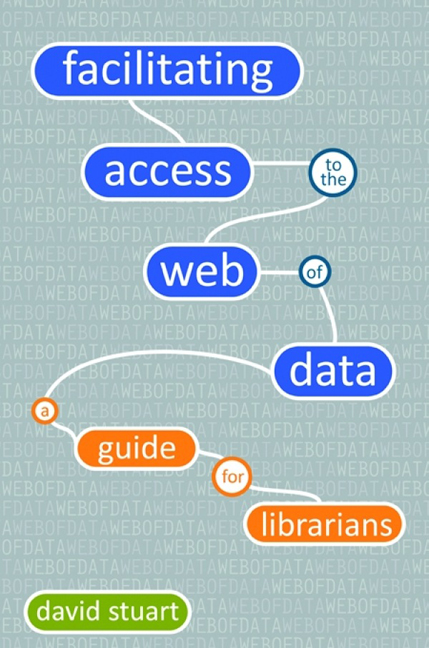Book contents
- Frontmatter
- Contents
- List of figures and tables
- Introduction
- 1 Open data
- 2 A semantic web: one that's meaningful to computers
- 3 Data silos
- 4 The semantic web: the RDF vision
- 5 Embedded semantics
- 6 The library and the web of data
- 7 The future of the librarian and the web of data
- Bibliography
- Index
- M-Libraries 2
- Making the Most of RFID in Libraries
- Access, Delivery, Performance
- Library Mashups
- Miscellaneous Endmatter
- Frontmatter
- Contents
- List of figures and tables
- Introduction
- 1 Open data
- 2 A semantic web: one that's meaningful to computers
- 3 Data silos
- 4 The semantic web: the RDF vision
- 5 Embedded semantics
- 6 The library and the web of data
- 7 The future of the librarian and the web of data
- Bibliography
- Index
- M-Libraries 2
- Making the Most of RFID in Libraries
- Access, Delivery, Performance
- Library Mashups
- Miscellaneous Endmatter
Summary
Introduction
‘Open data’ is not the result of a single, idealistic movement that has resulted in the opening up of vast amounts of data from a host of different organizations, instead it is the result of numerous individuals and organizations interested in data being made publicly available for both selfish and selfless reasons. There are large international organizations that recognize the publishing of data provides an opportunity for them to benefit commercially from the skills of developers and experts outside their organization. There are governments who are not only responding to calls for increased transparency from members of the public, but also recognize the economic potential of the data they own, as well as the possibility for savings in public departments. There is the scientific community, where open science offers the opportunity for reducing the duplication of work and enabling faster and cheaper progress for scientific discovery. Also, there are significant sources of data that can be opened up by libraries to provide their users with better information services, although this is an area that has hardly begun.
This chapter looks at the breadth and context of the open data that is being made available by academia, government, industry and the library community. The scientific community has a long tradition of publicly publishing findings within academic journals, although this is a very small proportion of the information and knowledge that is actually collected. The commercial sector has been one of the leaders in making data available online, and trying to tap into the potential of the wisdom of the crowd that has been demonstrated so ably in the open-source community. Over the past two years governments around the world have been making huge efforts to make public data available, and not only is it a trend that is set to continue, but also some governments are set to be leaders in the open-data field in comparison to the commercial sector.
- Type
- Chapter
- Information
- Facilitating Access to the Web of DataA guide for librarians, pp. 1 - 20Publisher: FacetPrint publication year: 2011



